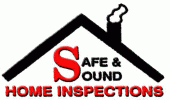Lease Inspections
Why Commercial Property Inspections Are Essential for Leasing Success
Leasing a commercial property is a significant commitment for any business. Whether you’re establishing a new location, expanding to accommodate growth, or relocating, it’s essential to understand the condition of the space you’re about to lease. That’s where a commercial property inspection comes in, providing vital insights into the property’s current condition and potentially saving you significant time and money in the future. Here’s why an inspection should be a crucial part of the leasing process.
1. Avoid Hidden Costs and Surprises
A commercial property inspection thoroughly assesses the building’s structure, systems, and critical components, including HVAC, electrical, plumbing, roofing, and foundation. This evaluation identifies any existing issues or deferred maintenance, giving you a complete understanding of the property’s current state. Without an inspection, you may inherit costly repairs that aren’t apparent during a walkthrough or based solely on the landlord’s claims.
2. Gain Negotiating Leverage
Inspection reports provide concrete evidence of any issues that may need addressing before you sign the lease. With a comprehensive inspection report, you can negotiate with the property owner for necessary repairs or maintenance, reducing your out-of-pocket expenses after moving in. In some cases, landlords may agree to lower monthly lease rates or offer additional allowances if extensive work is required, making inspections a powerful tool for negotiation.
3. Clarify Your Maintenance Responsibilities
Commercial leases vary greatly, and the responsibilities of both tenant and landlord are often outlined differently in each agreement. A property inspection can highlight maintenance needs or future repairs, helping you clarify which costs and tasks are your responsibility under the lease. By understanding these factors, you can avoid potential disputes with the landlord and budget more accurately for ongoing maintenance.
4. Protect Your Employees and Clients
Health and safety should be a priority for any business. An inspection can reveal hazards such as faulty wiring, mold, asbestos, or structural vulnerabilities that could impact the well-being of employees and clients. By addressing these concerns before moving in, you create a safer environment, uphold workplace standards, and avoid potential liability.
5. Ensure Compliance with Local Building Standards
Older buildings may not always be up to current building codes and standards. An inspection assesses whether the property meets relevant regulations for safety, accessibility, and environmental standards. Non-compliance can result in hefty fines and costly adjustments down the line. By conducting an inspection you are able to negotiate any needed upgrades to the property based on your proposed usage needs.

Properties We Inspect
Multi-Family Properties
We inspect multi-family properties that range from duplexes to 100+ unit apartment complexes.
Retail Suites and Retail Parks
We inspect strip malls, big box retail locations and main street buildings.
Warehouse and Industrial Buildings
We inspect larger properties such as warehouses and industrial. Industrial buildings often require more time on site or modified hours of access.
Mixed Use Developments and Live/Work Spaces
We provide inspection services for mixed used developments, and properties designed for Live/Work purposes.
Church Buildings and Campuses
We inspect religious facilities that range from small chapels to large modern church buildings.
Hotels
We inspect small mom and pop hotels, boutique hotels and large corporate owned properties.
Office Buildings
We inspect office buildings and office parks.
Schools and Educational Facilities
We inspect traditional school buildings as well as spaces that have been or will be converted for educational use.
